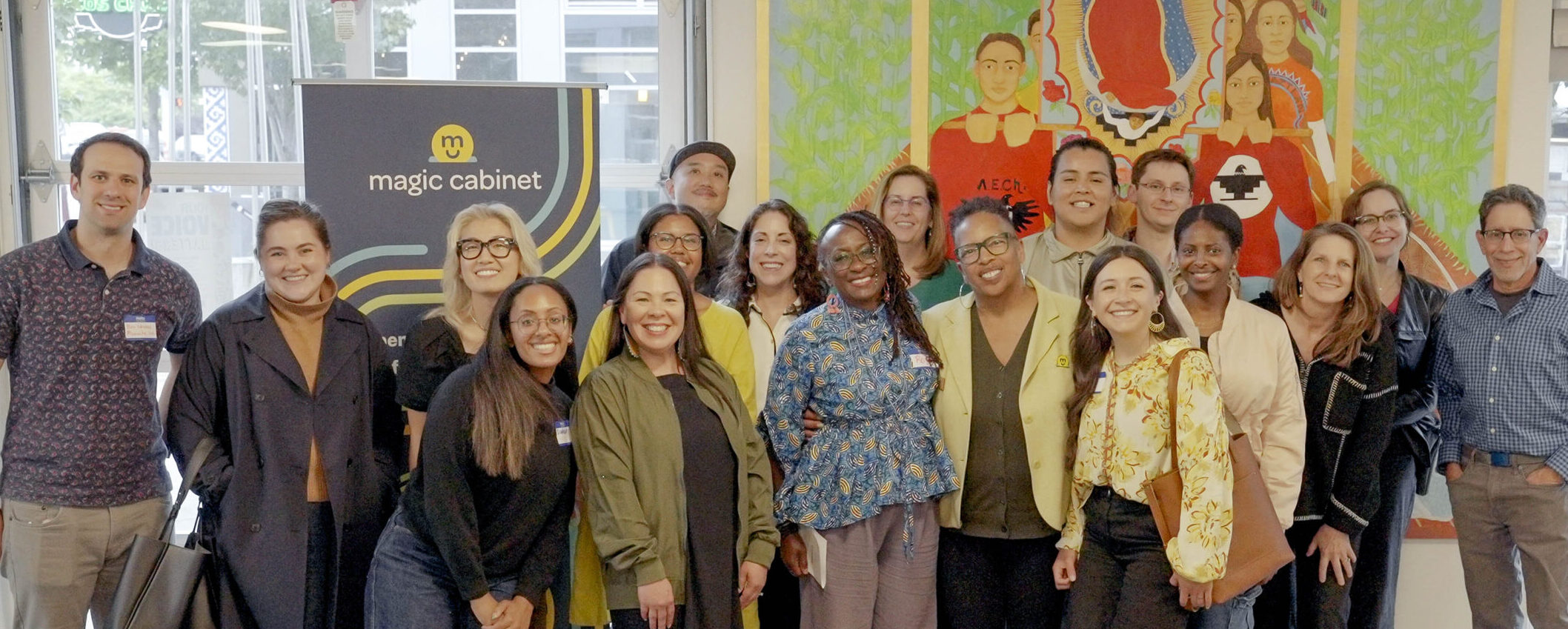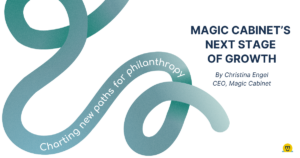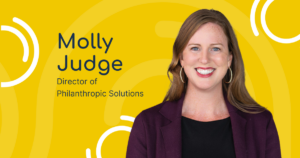Unlocking Abundance: A Conversation About DAF Reform in the Pacific Northwest
Magic Cabinet and Proximate gathered philanthropy leaders in June to discuss paths to reform for donor-advised funds

This article is reposted from Proximate, our nonprofit media partner.
What is the future of DAF reform – and what role can philanthropy leaders in the Pacific Northwest play in driving national and regional conversations around legislation, regulation and best practices for equitable grantmaking?
In the past few years, donor-advised funds have become a huge part of the conversation about charitable giving. Some advocates have called for federal reforms requiring time-bound payouts, increased transparency, and changes to rules around tax deductions. Others have denounced any reform, arguing that imposing requirements would have a chilling effect on charitable giving.
On June 27, Magic Cabinet and Proximate hosted an afternoon conversation called Unlocking Abundance to discuss the future of DAFs in the United States. Leaders from across the Pacific Northwest’s philanthropy ecosystem were in attendance.
During the event, we conducted a Mentimeter poll to gauge the number of attendees who manage or engage with DAF holders and their readiness for DAF reform at an organizational level. The poll showed that:
- 61% manage DAF funds or interact with DAF donors
- 55% are engaged in research or advocacy related to DAFs
- The majority of attendees expressed that their organizations would be open to supporting increased regulation on DAFs
The afternoon started off a panel conversation moderated by Magic Cabinet’s Karen Toering. Panelists Dan Petegorsky (Institute for Policy Studies), Se-ah-dom Edmo (Seeding Justice) and Marc Moschatel (Philanthropy Northwest) discussed the latest advocacy around federal and state DAF reform and shared alternative models that foundations can take to steer power over DAF distribution to local communities.
Some notable takeaways are below:
Polling shows a consensus on DAF reform across the political spectrum
On the panel, Petegorsky, pointed to a survey from the Institute for Policy Studies and The Giving Review that found that a strong majority of Americans support charity reform. The survey shows that 79 percent of Americans support a five-year distribution requirement on DAFs, and 83 percent agree that donors should be required to disclose contributions due to their influence on nonprofits.
Petegorsky, a leader of the national Donor Revolt for DAF Reform, referenced the poll as a sign of cross-partisan alignment on DAFs in an election year, one year after the failure of the ACE Act.
“We’ve done polling that shows that proposals to rapidly increase payout rates and other reforms have overwhelming support from left to right across the political spectrum,” he said. “Of course, polls don’t organize; polls don’t vote.”
An alternative narrative around DAFs could power reform efforts
The prevailing narrative around donor-advised funds has touted them as the “charitable checkbook”, giving donors a convenient and flexible way to manage their charitable giving. But as contributions to DAFs topped $85 billion in 2022 and payout rates decreased 20% from the previous year, nonprofits are losing out on billions in additional revenue.
“We have to figure out the other powerful narrative that’s going to drive change,” said Edmo, Executive Director of Portland-based funder Seeding Justice.
Seeding Justice is taking the lead in this regard, building an alternate model for DAFs they call Donor-in-Movement Funds. These giving vehicles are designed to spend down and guided by a group of advisors with knowledge of emerging, grassroots organizations across Oregon.
The premise is simple—50 percent of the DMF goes to a grantmaking committee to fund smaller, justice-oriented organizations; 40 percent of the fund is allocated at the donor’s discretion, so long as the benefitting groups are aligned with Seeding Justice’s values; and the remaining 10 percent provides operational support for Seeding Justice.
“We’re an operating foundation, so we raise and grant out money each year. In the last four years, we’ve raised and granted out significantly more than we had previously… that’s largely due to our Donor-in-Movement funds. And much of the giving is more mission-aligned.”
The Pacific Northwest could be fertile ground for DAF reform
Several panelists agreed that the region is already a leader in both calling for legislative reform as well as innovating alternative models.
As a Public Policy & Research Analyst at Philanthropy Northwest, Moschatel engages with members and network partners on a range of topics, including DAF reform. He shared that conversations around DAFs are common among philanthropy leaders in the region.
“I’ve heard from a lot of DAF sponsors that are worried that reform would scare off donors or dissuade donors. But we’ve seen in the research that’s not the case,” he said. “At the end of the day, DAFs have not really increased charitable giving; they’re more a reflection of growing wealth inequality in the region.”
Magic Cabinet Advocacy brings together funder, government, and community partners to advocate for equitable policies and push for greater accountability within the philanthropic sector.
Proximate and Magic Cabinet will continue partnering to co-host regional convenings and virtual events focused on topics at the intersection of trust-based philanthropy and public policy.




